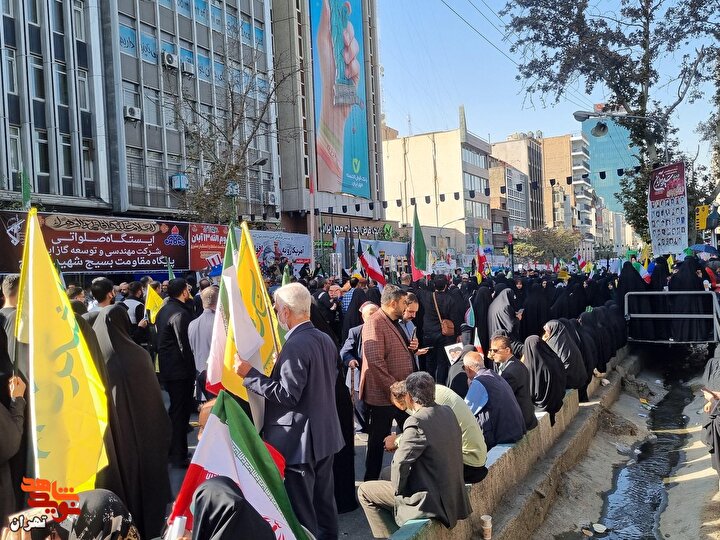
Official:
Memories Make up the Oral History of Islamic Revolution
Navideshahed: "Islamic Revolution memories are like puzzle pieces that when fit properly depict a thorough and comprehensive picture of Islamic Revolution," said Hujjat al-Islam Fakhrzadeh, the Manager of the Islamic Revolution Literature Bureau Oral History Department.

Hujjat al-Islam Saeed Fakhrzadeh talked about the quality of books which are written in the field of Revolution's memories saying historians should evaluate the work's quality. When history data are screened by an expert or historian the incident's accuracy will be deliberated correctly.
He added:" A historian can confirm or deny the fact of a revolution or history memory considering the documents, scripts and terms. Evaluating a work's quality, a historiographer should find the stance of the memory's narrator in the historical incident."
Manager of the oral history department of Islamic Revolution's literature office added that if the books of the Revolution's memories are written by historians, the incidents will be more close to the reality. Considering the information and details, the historian will approach the truth or the memory will be compared with the other works and then a correct result is gained.
He then said that firstly the difference of a history book with a memory should be determined. Memory is an event said by a person whose historical data is expressed according to the memory as well.
On the other hand in oral history, the historian dominates the memory and he approaches the real text through considering the details and paying attention on the data and comparing them with other sources, he added.
Talking about the differences of the memories he added:" Most of the differences is related to the person who is interviewing. The interviewer should present the memory in an understanding manner and the person who fails to do so will certainly offer an ambiguous work.
"Therefore the people cannot communicate with memories and that’s why the works don’t turn into artistic and literary ones; since a director or any other artist can not bond with the memories due to their vagueness," he added.
He finally said that information which is gathered as memories resembles pieces which will finally present a complete picture of the Islamic Revolution.
The End
Source: IBNA
Hujjat al-Islam Saeed Fakhrzadeh talked about the quality of books which are written in the field of Revolution's memories saying historians should evaluate the work's quality. When history data are screened by an expert or historian the incident's accuracy will be deliberated correctly. He added:" A historian can confirm or deny the fact of a revolution or history memory considering the documents, scripts and terms. Evaluating a work's quality, a historiographer should find the stance of the memory's narrator in the historical incident." Manager of the oral history department of Islamic Revolution's literature office added that if the books of the Revolution's memories are written by historians, the incidents will be more close to the reality. Considering the information and details, the historian will approach the truth or the memory will be compared with the other works and then a correct result is gained. He then said that firstly the difference of a history book with a memory should be determined. Memory is an event said by a person whose historical data is expressed according to the memory as well. On the other hand in oral history, the historian dominates the memory and he approaches the real text through considering the details and paying attention on the data and comparing them with other sources, he added. Talking about the differences of the memories he added:" Most of the differences is related to the person who is interviewing. The interviewer should present the memory in an understanding manner and the person who fails to do so will certainly offer an ambiguous work. "Therefore the people cannot communicate with memories and that’s why the works don’t turn into artistic and literary ones; since a director or any other artist can not bond with the memories due to their vagueness," he added. He finally said that information which is gathered as memories resembles pieces which will finally present a complete picture of the Islamic Revolution. The End Source: IBNA



